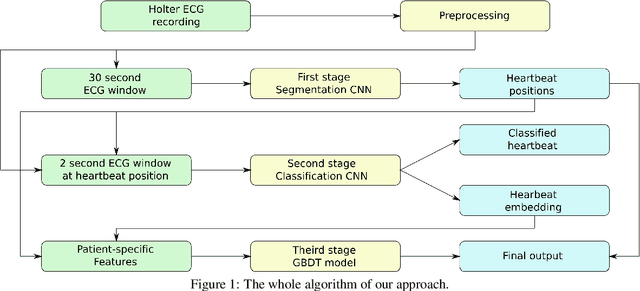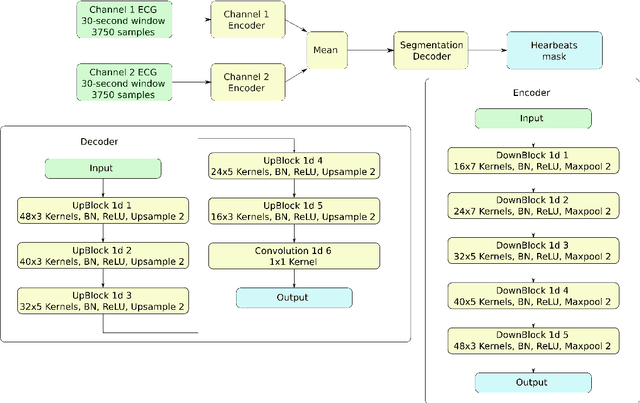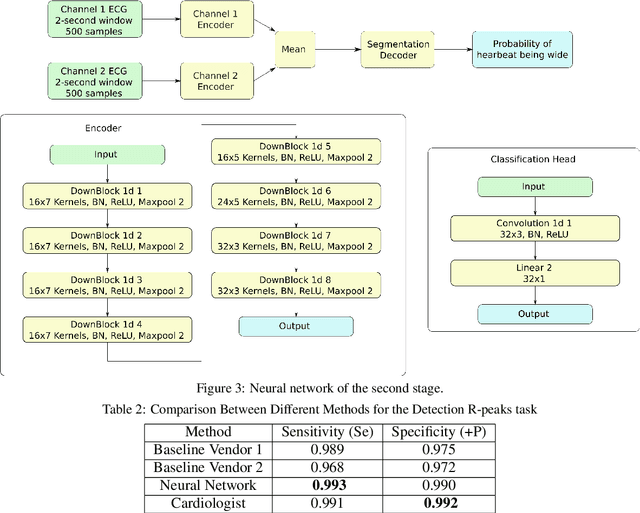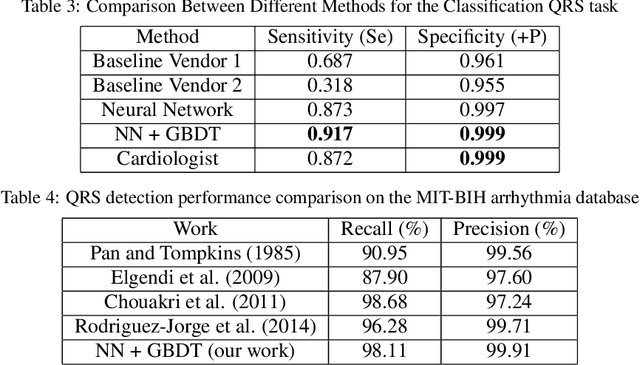Noise-Resilient Automatic Interpretation of Holter ECG Recordings
Paper and Code
Nov 17, 2020



Holter monitoring, a long-term ECG recording (24-hours and more), contains a large amount of valuable diagnostic information about the patient. Its interpretation becomes a difficult and time-consuming task for the doctor who analyzes them because every heartbeat needs to be classified, thus requiring highly accurate methods for automatic interpretation. In this paper, we present a three-stage process for analysing Holter recordings with robustness to noisy signal. First stage is a segmentation neural network (NN) with encoderdecoder architecture which detects positions of heartbeats. Second stage is a classification NN which will classify heartbeats as wide or narrow. Third stage in gradient boosting decision trees (GBDT) on top of NN features that incorporates patient-wise features and further increases performance of our approach. As a part of this work we acquired 5095 Holter recordings of patients annotated by an experienced cardiologist. A committee of three cardiologists served as a ground truth annotators for the 291 examples in the test set. We show that the proposed method outperforms the selected baselines, including two commercial-grade software packages and some methods previously published in the literature.
 Add to Chrome
Add to Chrome Add to Firefox
Add to Firefox Add to Edge
Add to Edge